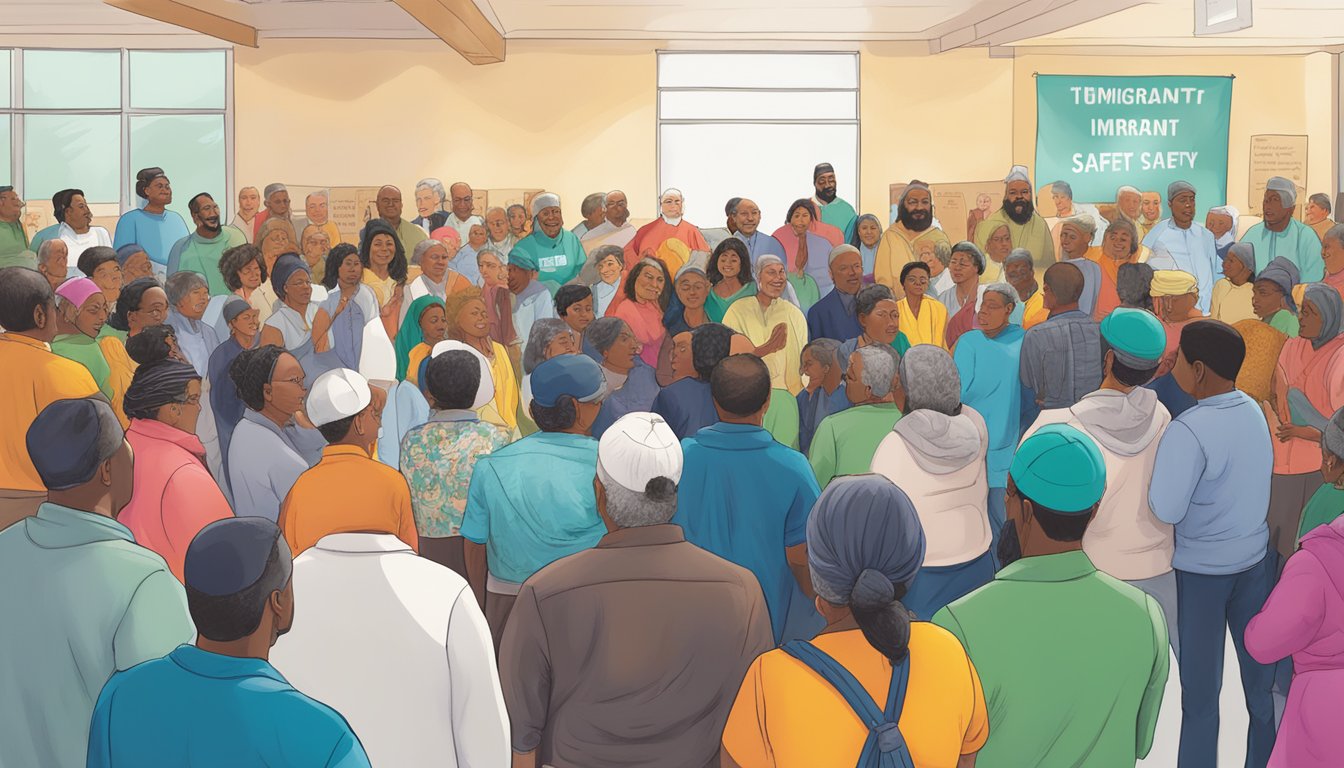Don’t Miss Out On This Unique Astrological Opportunity
Are you tired of spinning your wheels and getting nowhere? Simply put, you’re out of sync: you’re out of alignment with your astral configuration.
But: there’s a kind of map that can help you reclaim your alignment. Think of it as your own personal blueprint to success and happiness: a blueprint that will help you live your most amazing life.
Get started here.
Recent adjustments to Immigration and Customs Enforcement (ICE) policies have prompted many faith leaders to confront growing fears and misinformation within their immigrant communities, all while grappling with declining church attendance.
A significant challenge has arisen with the spread of false information online.
For instance, a TikTok video falsely claimed that ICE officers were present at the Manna Food Center at Glenmont United Methodist Church in Maryland.
This rumor was later proven to be misleading; it stemmed from a parishioner’s error in identifying unmarked vehicles as ICE units, which sparked unnecessary panic within the community.
Impact of Misinformation on Faith Communities
Rev. Kelly Grimes, who oversees a multicultural congregation serving Spanish- and French-speaking individuals, articulated the difficult position faith leaders find themselves in as they work to clarify these inaccuracies.
She noted the emotional strain this misinformation has imposed on attendees, creating an atmosphere of fear.
Under recent directives from the Trump administration, the protections that previously safeguarded sensitive locations, like churches, from ICE actions are under threat.
The first notable incident involved the arrest of an asylum-seeker at the Iglesia Fuente de Vida in Tucker, Georgia.
Just as the service was coming to a close, Wilson Velásquez, who fled violence in Honduras, was apprehended when he stepped outside to avoid causing a disturbance.
On the same day, reports surfaced of at least 20 other asylum-seekers being detained in the Atlanta area, raising alarms among leaders about the consequences for families, particularly for those with children who could be left behind.
Faith Leaders Respond
Agustin Quiles, director of the Florida Fellowship of Hispanic Councils and Evangelical Institutions, expressed his worries about the potential fallout for the thousands of children at risk due to these emerging policies.
He stressed the urgent need for support strategies aimed at those who find themselves in precarious situations.
In an effort to assuage fears, Rev. Samuel Rodriguez of the National Hispanic Christian Leadership Conference reassured congregants that ICE raids within places of worship remain unlikely.
He emphasized the importance of protecting the emotional safety and property rights of congregants, regardless of their immigration status.
Rodriguez advocated for reforms that would legalize long-term residents who contribute positively to their communities.
Rev. Gabriel Salguero, president of the National Latino Evangelical Coalition, convened a well-attended webinar with evangelical leaders to discuss how to prepare for possible ICE interventions.
They provided insights into respectful engagement with ICE agents, highlighted the significance of informing congregants about their legal rights, and focused on training church leaders to respond appropriately should a raid occur during a service.
The discussion also touched on the broader implications of immigration enforcement on faith communities, emphasizing the need for solidarity and preparedness.
Participants referenced Archbishop Garcíasiller on border challenges, drawing parallels between humanitarian efforts and the church’s role in providing refuge.
The webinar concluded with a call to action, urging churches to establish clear protocols that prioritize both compassion and legal awareness.
Some organizations, including five Quaker groups, have taken legal steps against the Department of Homeland Security, claiming that enforcement policies targeting areas near places of worship are constitutionally flawed and infringe on religious liberties.
Continuing Support and Education
Meanwhile, Catholic bishops have voiced their support for immigrant protections while sharing essential “know your rights” resources with their communities.
However, the specific actions being taken by various dioceses to prepare remain somewhat unclear.
Imam Musa Kabba of Masjid-ur-Rahmah in the Bronx emphasized the need for educating congregants about their rights amidst the government’s stringent approach.
He also encouraged his community to persist with their regular activities, firmly stating that the mosque is not involved in criminal conduct.
Kabba urged those close to policymakers to remind them of their immigrant histories and the challenges many face.
The role of churches as sanctuaries is a topic of ongoing discussion.
While responses from political leaders differ, some have called for a reevaluation of policies that allow detentions in religious spaces.
In this fraught environment, Rev. Grimes reiterated the underlying fears within her community, noting that several members have experienced detention despite their legal residency.
She reinforced the commitment of the United Methodist Church to offer refuge and protection to those in need, voicing her concerns that ICE operations could alienate vulnerable individuals from the very safe havens they seek.
Source: Religionnews



